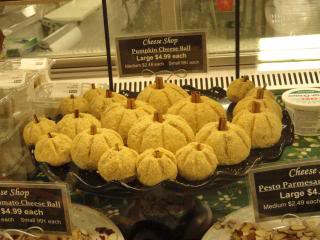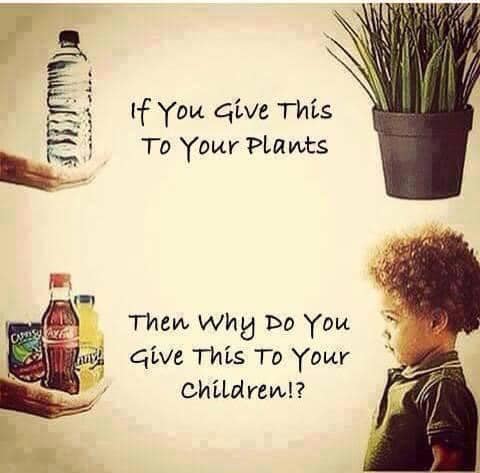





This page was created to bring together several ideas involving parental belief about sugar.
This website has for many years had information refuting the idea that sugar is addictive, or that sugar makes kids hyperactive. There are dozens of descriptions of kids choosing other foods over sugar when there's an array and sweets are as readily available as any other food.
Below is from a discussion from Radical Unschooling Info about *why* the belief is so prevalent.
Meredith:
What makes so many erroneous beliefs tenacious is "variable reinforcement" - when something correlates only some of the time, people actually believe it harder and longer than if there's a clear relationship every single time. It's the root of superstition, and it's true of any creature with a brain - not just human nature, but animal nature. We're instinctively superstitious 😉When are kids actively given lots of sweets? At exciting events: parties. So Some of the time, kids+sugar correlates with lots of running around in excitement.
The other key factor is that "everyone knows". A great deal of parenting "wisdom" is made up of things "everyone knows" because everyone repeats them back and forth, over and over. Like "you have to go to school to learn" and "children need rules". Some of the things "everyone knows" are completely wrong, but because "everyone knows" them, it's very, very difficult for people to change their attitudes even in the presence of evidence to the contrary.
It was really shocking for me to discover just how much of what I "knew" was a result of that repetition. I accounted myself an intelligent, thoughtful person, with strong "alternative" viewpoints, but most of what I thought I knew about parenting was based in a kind of cultural conditioning. The ideas in my head weren't my own. That's humbling.
I made a real effort to remember that unschooling is natural learning on the part of the learner, and that the experience of his relationship to sugar would just have to belong to him and sugar. Not to me and sugar.
Not the same choices
"Happy, supported, trusted kids don't make the same choices as unhappy, controlled kids."

Moms who say "sugar is bad for you" will look like they don't know what they're talking about when healthy friends or extended family members eat sugary foods.
The risk to the parent/child relationship is greater than the supposed risks of sugar.
The article focuses on why human children spend so many years small compared to other mammals. But the interesting part for unschoolers is
"From about the age of four to puberty, the young brain guzzles glucose – the cerebral cortex, its largest part, uses nearly (or more than) double that used earlier or later in life. This creates a problem. A child’s body is a third of the size of an adult but its brain is nearly adult sized. Calculated as a share, a child’s takes up half of all the energy used by a child."Glucose in the bloodstream -- that all cells use as energy -- comes from simple carbohydrates (sugars) and complex (starches). Four to puberty is the big period when kids are most drawn to sugar and carbohydrates. (Capt. Crunch is like pure energy gold.😉 It's also when their palates narrow, so maybe there's a connection there too.)
This is more back up for why children's food choices should be honored. They know what their bodies need.
Why Do Human Children Stay So Small For So Long?
December 11, 2014 | by John Skoyles
Children can't live on water and sunlight.
They need sugar more than adults do.
It's a faulty comparison.

I try to model healthy eating, and I eat mostly whole foods - fruits, veggies, and grains. But when I offer her a bite of my food, she tells me it's "yucky" and that she wants cookies instead.Because she's young, the food you're eating probably IS yucky. Not sweet enough.
Anyone who's ever tasted human breast milk, compared to what formula tastes like, will know that it's REALLY sweet. Formula is yucky. Kids have an instinctive desire for sweetness. Adults like all kinds of bitter, sour things, but young children tend not to.
Try not to go against nature, when you're aiming to "be natural."
You're assuming she will eat sweets all the time if you don't prevent it. There are deep and wide problems with that.
Later in that same discussion, Sandra responding again to "I try to model healthy eating."Healthy eating for an adult woman isn't the same as for a teenaged boy or an eight year old girl or a two year old or an infant.
-=-Do I just "let her" (I hate using that phrase) eat sweets all the time?-=-
Here are two pages to read, and each has links to others if you're not persuaded to relax before those two are done.
True Tales of Kids Turning Down Sweets— What actually happens when children have choices?
I was sharing the story with Brie Jontry, who knows those involved, and she wrote this, for me to share.
When Noor was diagnosed with diabetes and was in the hospital, it was a 4-day crash education course for the parents on how to keep their kid alive. One whole day focused on low blood sugar and how deadly it is. There was a chart they showed us of what happens to the brain and rest of body at various blood sugar levels.The brain LIVES on glucose. It can’t live without it. And little kids' brains need more glucose than adults.
“Empty calories” implies that that a food has no benefit - no substance. The “emptiest” of calories by that logic: juice, pure glucose, candy without fat (fat and fiber slow down the absorption of glucose) are brain-growing, brain-preserving, and life-saving necessities.
Also annoying: People who parrot the "empty calories" and "oh no, sugar!" sound bites often don’t know that even protein converts to glucose in our bodies. Eat a steak and nothing else and guess what? About four hours later depending on metabolism, blood glucose levels will rise.
Glucose is the primary source of energy not only for the brain but for large tissues, muscles and other organs like the liver.
Warning: you might get people coming and talking about "keto" - which is a means of eating almost no carbs so the body is fueled by ketones instead of glucose. This works for many people with type 2 diabetes but will kill someone with type 1. Being on a keto diet also stunts the growth and possibly (some studies show it does, others it doesn't) lower IQ (for whatever that's worth) of young people with severe forms of epilepsy who are on ketogenic diets. Significantly reducing carbohydrates for severe seizure disorders is an extreme situation, though - but it does work
But old and young people need sugar!
If you want a citation - this is the bookmark I have saved that I'd send to parents who wanted to limit sugar when their kids were diagnosed with type 1:
A critical period of brain development: studies of cerebral glucose utilization with PET
I'm sure there are newer ones now.
—Brie Jontry
In 1972 or so I was living where we had one irrigated field, and rows of vegetables. We were keeping a 4 or 5 year old niece who was never allowed any sweets at all. With two adults and two older kids in the house, at one point we lost her. In a panic, people started looking everywhere she could be, and finally she was found in the garden between rows, with the bag of sugar from the pantry. It was about half of a 5 lb. bag. She had it on the ground, and was squatted next to it, eating sugar by the handful as fast as she could.Another story, of the same girl and her younger sister. I was childless, and in my early 20s:The scariest thing is she was hiding, and there were dangers. There could have been water in the ditch, and there were other safety concerns.
I took two little nieces to the zoo in the mid-'70s. They were hippie kids who had been raised in the country, in a sugar-free environment. The younger one acted nervous from time to time, and finally pointed at someone eating cotton candy and asked me softly, "Why are those people eating toilet paper?"I did the only educationally appropriate thing, and bought her some. The three of us together didn't finish it.
|